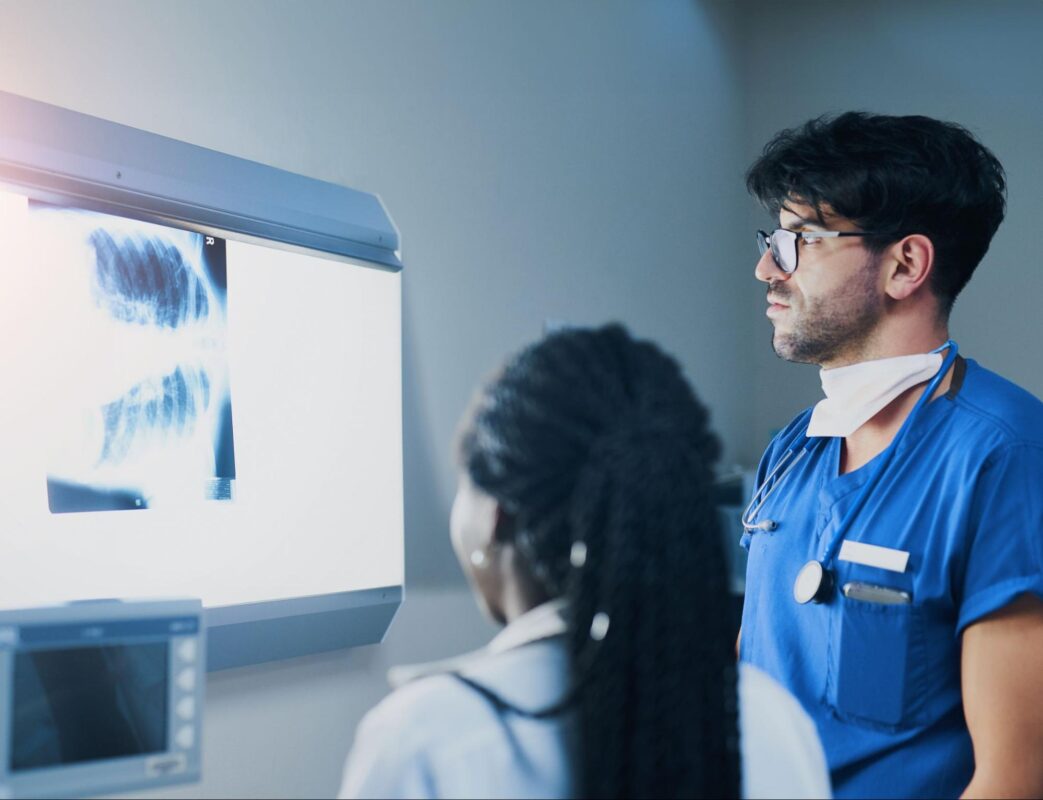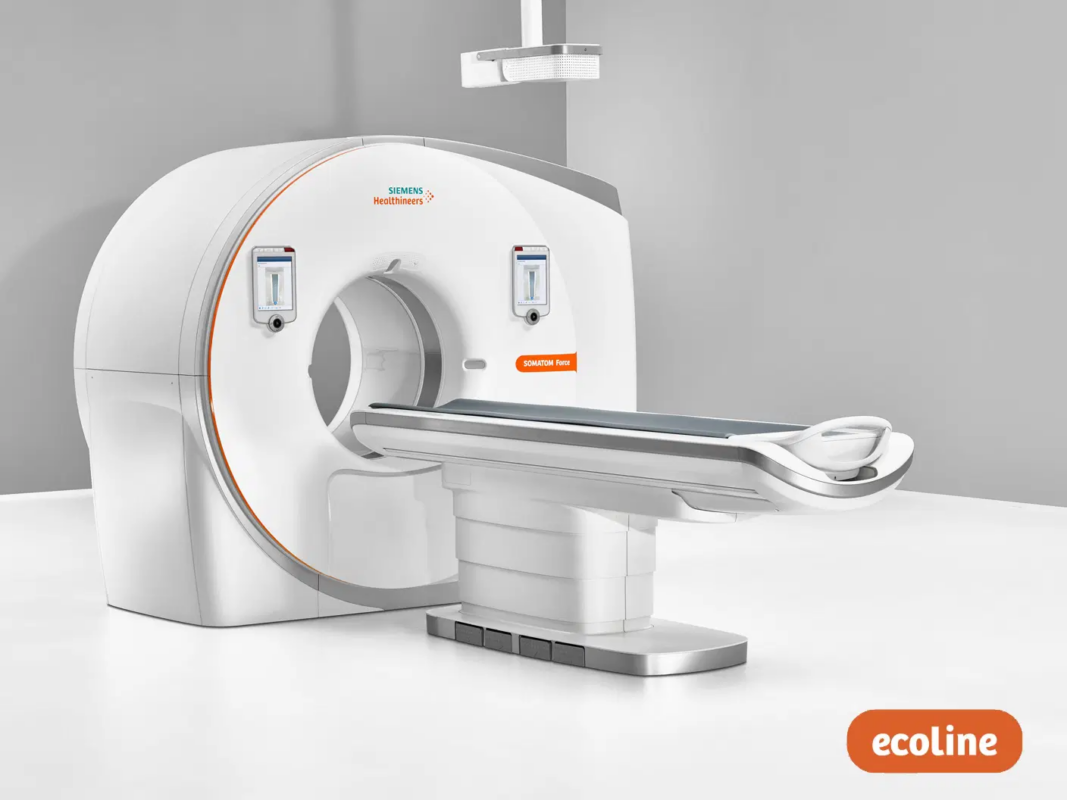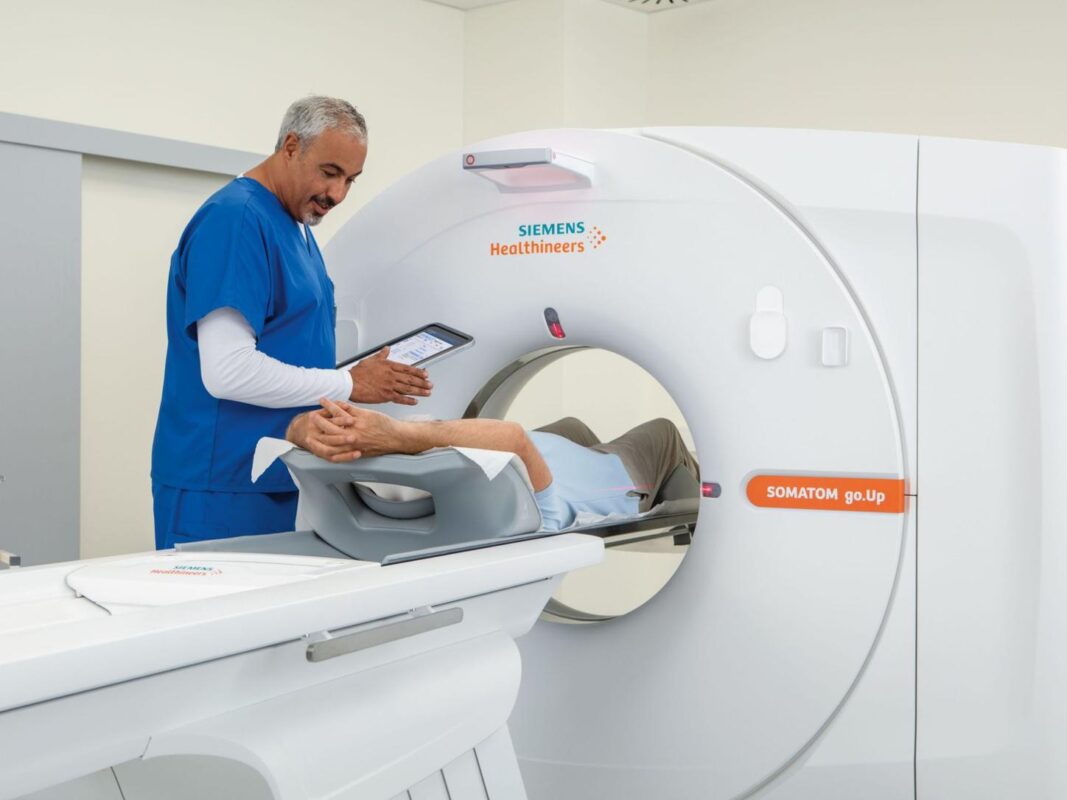AI diagnostic imaging is transforming the way healthcare providers detect, analyze, and diagnose diseases. By integrating AI-driven solutions into diagnostic workflows, medical facilities can enhance accuracy and help reduce human error.
Centella delivers cutting-edge solutions to help healthcare providers seamlessly adopt AI-powered imaging. Contact us today to enhance your diagnostic capabilities.
The Evolution of Medical Imaging

Medical imaging has undergone a remarkable transformation from traditional X-rays to advanced modalities powered by artificial intelligence. AI-driven solutions are now revolutionizing diagnostic precision by enhancing the speed, accuracy, and efficiency of imaging workflows. Operators in the radiologic imaging space have been utilizing artificial intelligence and machine learning (“AI”) to improve both clinical and non-clinical functions. These advancements reshape patient care, optimize imaging interpretation, and streamline operational efficiencies across healthcare facilities.
Defining AI in Imaging
AI in medical imaging encompasses a range of technologies designed to analyze medical images with unprecedented accuracy. Deep learning models, a subset of artificial intelligence, enable computers to detect patterns, recognize abnormalities, and assist radiologists in diagnosing conditions with higher confidence. The number of AI-related medical devices approved annually by the U.S. Food and Drug Administration has grown dramatically, especially in recent years. As of October 2023, the FDA had approved 691 devices (and nearly 200 since), with the first AI-powered imaging tool dating back to 1995 for pap smear screening.
With AI-driven imaging solutions, healthcare providers can enhance diagnostic precision and reduce variability in medical interpretations. As adoption continues to expand, integrating AI into radiology workflows will be critical for maintaining the highest standards of accuracy.
Enhancing Image Analysis and Interpretation

Automated Detection Algorithms
AI-powered automated detection algorithms help identify patterns and abnormalities that may be challenging for the human eye to detect. These deep-learning algorithms analyze medical images, assisting radiologists in diagnosing conditions such as tumors, fractures, and cardiovascular diseases. AI streamlines healthcare workflows, reducing physician burnout and enhancing decision-making. By integrating artificial intelligence into imaging, healthcare providers can improve efficiency while maintaining high diagnostic standards.
Quantitative Imaging Biomarkers
Beyond pattern recognition, AI is advancing the use of quantitative imaging biomarkers—measurable indicators extracted from medical images that provide deeper clinical insights. These biomarkers, powered by artificial intelligence in healthcare, help assess disease progression, predict treatment response, and personalize patient care. As AI technology evolves, quantitative imaging will become an integral tool for precision diagnostics and evidence-based decision-making.
Streamlining Workflow and Efficiency

Through our partnership with Siemens Healthineers, a leader in medical imaging technology, Centella leverages cutting-edge innovations to deliver precision-driven imaging solutions that improve efficiency.
Scheduling and Resource Allocation
AI-powered tools reshape scheduling and resource management by optimizing scan times, reducing patient wait times, and maximizing equipment utilization. Medical facilities using AI in magnetic resonance imaging (MRI) and CT scans can dynamically adjust imaging parameters for each patient, ensuring consistent image quality while minimizing unnecessary radiation exposure. Centella’s CT imaging solutions, powered by Siemens Healthineers, arm healthcare providers with powerful tools for superior diagnostic workflow.
Integrating AI into Clinical Practice
As AI continues to reshape the field of radiology, its integration into medical practices requires ongoing education, regulatory adaptation, and ethical considerations to ensure safe and effective use.
Training and Education
Specialized training is essential for radiologists and clinicians to maximize its benefits. Understanding neural networks, deep learning models, and AI-assisted diagnostics enables healthcare professionals to integrate these technologies seamlessly into daily workflows.
AI is already making a measurable impact in cardiology, particularly in nuclear cardiac imaging, where it detects subtle perfusion defects, improving the diagnosis of coronary artery disease by up to 14% (Forbes Tech Council, 2025). By incorporating AI-driven imaging into cardiovascular diagnostics, clinicians can improve early disease detection and treatment planning. Centella provides ultrasound imaging solutions for cardiology to enhance diagnostic capabilities.
Regulatory and Ethical Considerations
With the increasing integration of AI in medical practices, regulatory frameworks must evolve to ensure data security and clinical validity. Governing bodies such as the FDA continuously assess AI-driven imaging tools to establish guidelines that balance innovation with ethical standards. The untapped potential in the estimated 97% of unused hospital data can be harnessed by AI-enabled applications, substantially augmenting disease trajectory prediction and treatment regimen modification. By leveraging AI to analyze previously unused clinical data, healthcare providers can enhance decision-making, optimize resource allocation, and improve personalized treatment planning.One of the key concerns in AI adoption is the potential for bias in neural networks, which can affect diagnostic accuracy for diverse patient populations. To mitigate these risks, ongoing validation, transparency in algorithm development, and clinician oversight are essential. According to Science Direct, studies have demonstrated that AI-based CT image analysis can assess the treatment effect of lumbar disc herniation more effectively, suggesting that AI in diagnostic imaging could reduce errors and misdiagnoses. By addressing these regulatory and ethical challenges, the field of radiology can foster responsible AI adoption, while maintaining the highest standards of patient care.
Case Studies and Real-world Applications

The integration of AI in medical imaging is already making a measurable impact across various specialties. From breast cancer detection to lung disease screening, AI-based imaging is shaping the future of diagnostics with high-quality images and automated analysis.
AI in Nuclear Cardiac Imaging for CAD Detection
AI is already making a measurable impact in cardiology, particularly in nuclear cardiac imaging, where it detects subtle perfusion defects, improving the diagnosis of coronary artery disease by up to 14% (Forbes Tech Council, 2025). By incorporating AI-driven imaging into cardiovascular diagnostics, clinicians can improve early disease detection and treatment planning. Centella provides ultrasound imaging solutions for cardiology to enhance diagnostic efficiency in cardiovascular care.
Breast Cancer Screening
AI-based systems are transforming breast cancer detection and reducing false positives. By analyzing mammograms with machine learning models, AI enhances radiologists’ ability to detect tumors at earlier stages. According to the American College of Radiology Data Sciences Institute’s (ACRDSI) AI Central, there are currently 30 FDA-approved AI algorithms for breast imaging. These AI-powered tools assist in analyzing dense breast tissue, identifying subtle anomalies, and providing a second layer of validation to support clinical decision-making.
Lung Disease Detection
AI is also revolutionizing pulmonary diagnostics by improving the detection and classification of lung diseases such as chronic obstructive pulmonary disease (COPD). Recent studies demonstrate that AI-based systems are being used to analyze auscultation data, pulmonary function tests, and imaging to identify COPD phenotypes. A study conducted in Turkiye used deep learning to evaluate 12-channel lung sounds from 41 participants with varying COPD severity, achieving a classification performance above 94% and an AUC value of 0.9659.
The Future of AI in Diagnostic Imaging

AI-based systems are powerful tools for healthcare providers, enabling high-quality images and more precise machine-learning models for early disease detection and treatment planning. As AI continues to evolve, its integration into clinical workflows will be essential.
Healthcare providers seeking to implement advanced AI-driven imaging solutions can rely on Siemens Healthineers’ cutting-edge technology. Contact Centella today to explore how AI-powered imaging can enhance accuracy, efficiency, and patient care in your medical facility.
